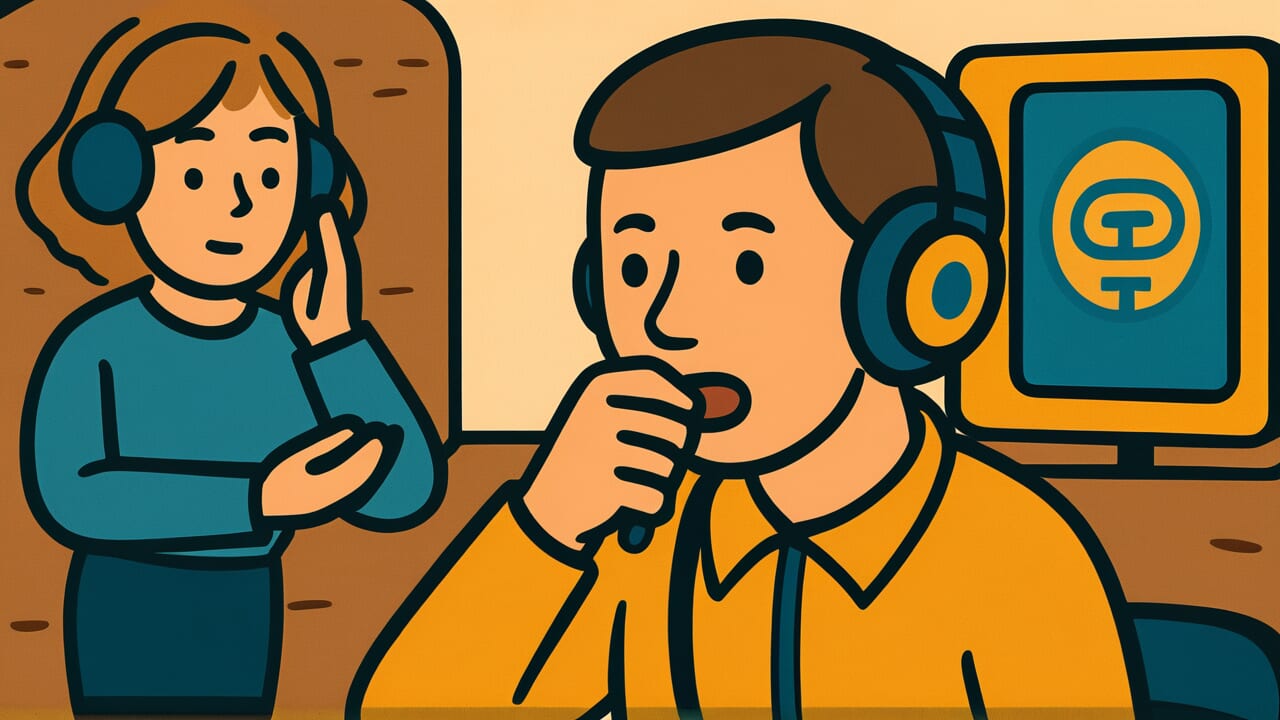How to Read “Listen twice, speak once”
Nido kiite ichido mono ie
Meaning of “Listen twice, speak once”
“Listen twice, speak once” teaches that you should listen carefully to others before speaking cautiously. This proverb emphasizes that listening should take priority over speaking.
Listening twice means repeatedly confirming what the other person says and accurately understanding their true intentions. Speaking once means expressing well-thought-out words only after you fully understand the situation.
This proverb applies to all communication situations, including meetings, consultations, and daily conversations. It proves especially powerful in situations with conflicting opinions or when important decisions must be made.
Rather than interrupting others to assert your own opinions, first understanding their position and thoughts becomes the first step toward constructive dialogue.
Origin and Etymology
The exact literary origin of this proverb remains unclear. However, based on its structure, scholars believe it reflects traditional Japanese views on communication.
The expression “Listen twice, speak once” uses numerical contrast to make its lesson memorable. The two-to-one ratio shows the ideal balance between listening and speaking.
Some theories suggest this saying directly reflects our physical features as behavioral guidance. Humans have two ears but only one mouth.
During the Edo period, the merchant world particularly valued teachings about such caution. In business negotiations, stating your opinion without fully hearing the other party could lead to failed deals.
In the samurai world too, careless remarks could prove fatal. The importance of accurately understanding others’ true intentions before speaking was shared across all social classes.
Behind this teaching lies the high value Japanese culture places on “the power of listening.” In a cultural environment where being a good listener earns more respect than being a good talker, this proverb naturally emerged and has been passed down through generations.
Usage Examples
- When asked for my opinion in the meeting, I followed the spirit of “Listen twice, speak once” and asked to confirm the situation in more detail once more
- She practices “Listen twice, speak once” and always gives accurate advice
Universal Wisdom
The universal wisdom shown by “Listen twice, speak once” addresses a fundamental challenge in human communication. It recognizes that we are instinctively “creatures who want to talk.”
Everyone has a desire to express their thoughts and opinions. Even while listening to others, we often think about what to say next. This is a natural human trait, and the desire for self-expression connects to survival instincts.
The wish to have our existence acknowledged and understood is a universal emotion everyone shares.
However, our ancestors recognized the dangers lurking in this instinctive desire. Becoming absorbed in speaking causes us to miss others’ true intentions, create misunderstandings, and damage relationships.
This proverb condenses humanity’s accumulated experience of repeating such failures.
True communication is not a game of catch with words, but an exchange of hearts. The attitude of trying to understand the emotions and intentions behind others’ words becomes the bridge connecting people.
This proverb has been passed down through the ages because the essence of human relationships remains unchanged, now as in the past.
When AI Hears This
Human conversation always contains noise. Surrounding sounds, mishearing, word ambiguity, emotional distortion. Claude Shannon, founder of information theory, mathematically proved the importance of “redundancy” as a method to counter such noise.
In other words, by repeatedly sending the same information, you can detect errors and restore correct information.
For example, mobile phone communication sends your voice data three times and takes a majority vote. Even if the first transmission gets corrupted by noise, the system can judge the information correct if the second and third transmissions match.
The “listen twice” in this proverb applies exactly this principle to human relationships.
If you judge after hearing someone’s words only once, you receive them with noise mixed in: the noise of momentary emotions, the noise of poor word choice, and the noise of your own assumptions.
What’s interesting is the rate of information increase gained by listening twice. It’s not simply double. Information theory shows that adding redundancy improves reliability exponentially.
If the other person’s expression changes slightly between the first and second time, you can infer their true meaning from that difference. If they match, your confidence increases.
Without knowing the mathematical formulas, humans discovered this optimal error-correction algorithm through experience.
Lessons for Today
Modern society overflows with information like never before, and anyone can become a sender. On social media, you can post opinions instantly. In meetings, real-time responses are expected.
In such circumstances, the teaching of “Listen twice, speak once” carries even greater importance than before.
Look around you. In an atmosphere where quick reactions earn praise, how many misunderstandings and conflicts arise? This proverb teaches us to value accuracy over speed, quality over quantity.
The practical tip is to maintain “awareness of trying to understand” when listening to others. Thinking of counterarguments or opinions can wait until after the other person finishes speaking.
Before speaking, try developing the habit of taking a breath. In that brief moment, you can consider whether you really should say it now, or if there’s a better way to express it.
Developing your listening skills also contributes to your own growth. You can learn from others, broaden your perspective, and gain deeper insights.
Don’t rush. Take your time. That attitude will bring weight and trust to your words.



Comments